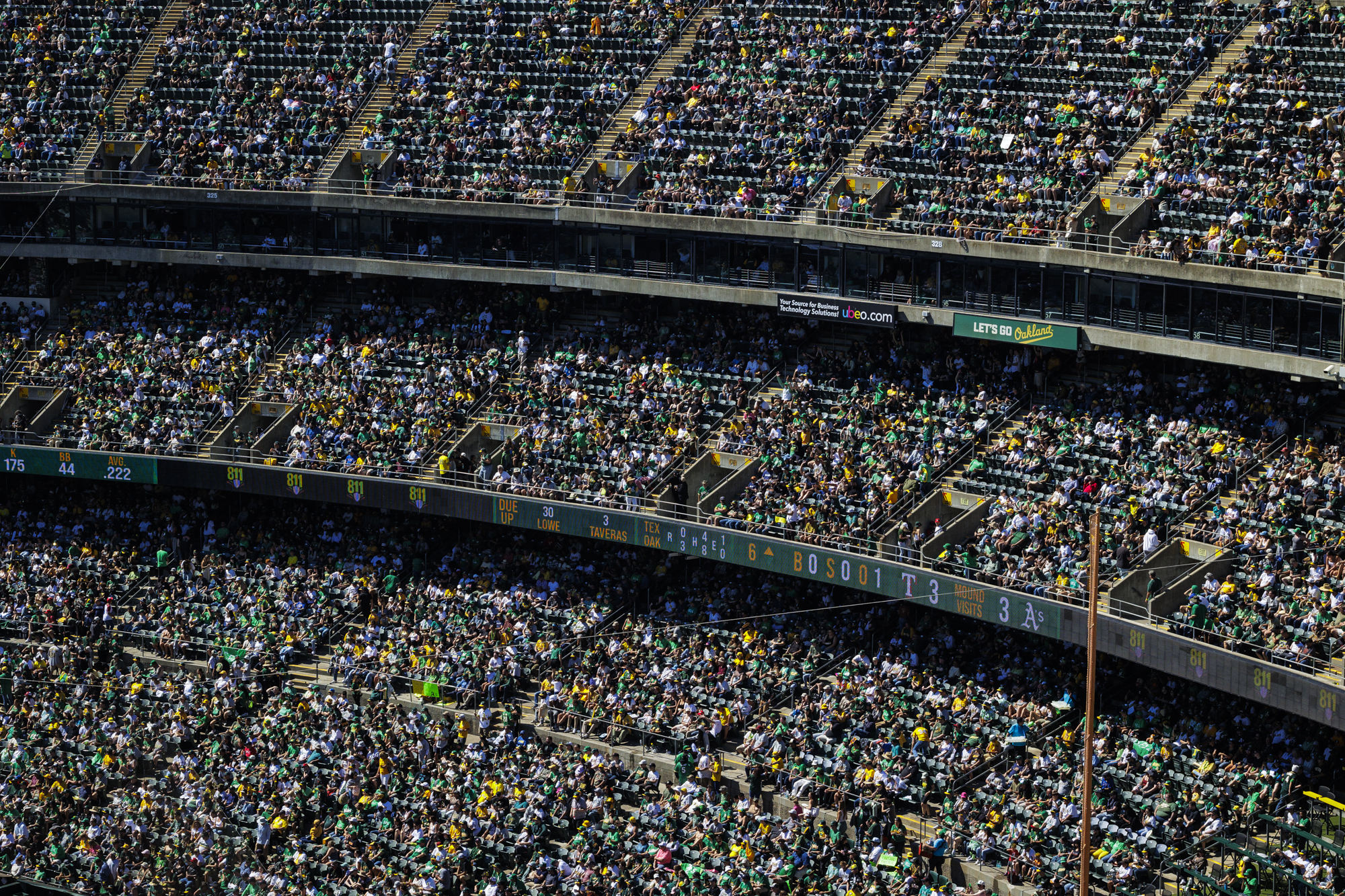The context: In early 2023, AASEG entered into an exclusive negotiating agreement with the city of Oakland to develop the Coliseum site. Over the summer of 2024, as the A’s prepared to play their final game at the Coliseum, both Oakland and the team signed deals formalizing sales of their shares to AASEG for $105 million and $125 million, respectively. Shortly after, Oakland renegotiated its deal with AASEG to increase its revenue by $5 million.
Both sale timelines have been delayed as months went by without Alameda County reassigning its interest in the site to the development company. The A’s deal cannot go through until the county does so, and AASEG has paused payments to Oakland, falling behind on its previously negotiated schedule, until the county deal is done.
Both of those deals are set to close in 2026.
Zoom out: Slow-moving negotiations with Alameda County have been far from the only bump in the road for the Coliseum deal since 2023.
Last spring, then-Mayor Sheng Thao announced that more than $60 million in revenue from the sale would be used to help patch an even larger hole in Oakland’s budget. Shortly after AASEG and the city finalized their deal in July 2024, though, the payment timeline was pushed back, forcing the city to institute a bare-bones “contingency budget” that caused fire station closures and police cuts, and eroded public trust.
AASEG has not made any payments to the city since the start of the year. The projected revenue from the sale is not included in the city’s 2025 budget plan.

What we’re watching: It’s unclear if AASEG plans to hand Oakland a lump sum for the payments missed due to county delays, or if the deal timeline with either the city or Oakland will be further revised.
The group’s $5 billion plan has raised eyebrows — and concerns about feasibility — since it was announced.
Once the sole owners, AASEG will also have to begin work on a community benefits agreement, which was required by its city deal. The deal aims to ensure that development serves the surrounding East Oakland community, where decades of disinvestment by businesses and the A’s have decimated the local economy.
AASEG has already committed to making 25% of any housing built affordable, and in the next five years, will have to begin to negotiate a bundle of other community benefits with stakeholders like Black Cultural Zone, Brotherhood of Elders, local youth centers and more.
Shonda Scott, one of the entertainment group’s members, told KQED when the deals were being negotiated that AASEG is looking forward to that work.
“It’s us being of the community, giving back to the community and making sure it’s done equitably, especially for those who have been historically disenfranchised in these sixth and seventh district areas that the Coliseum is a part of,” she said.

